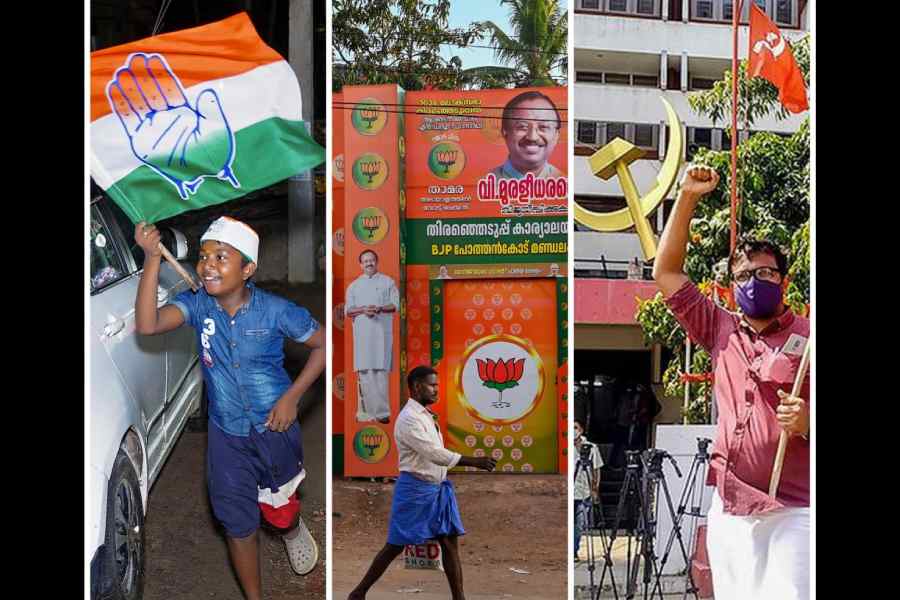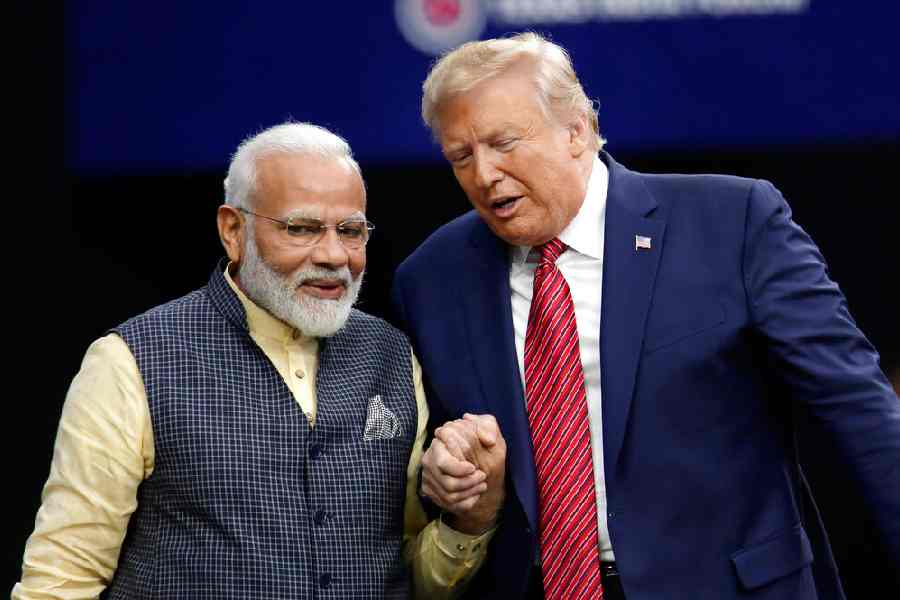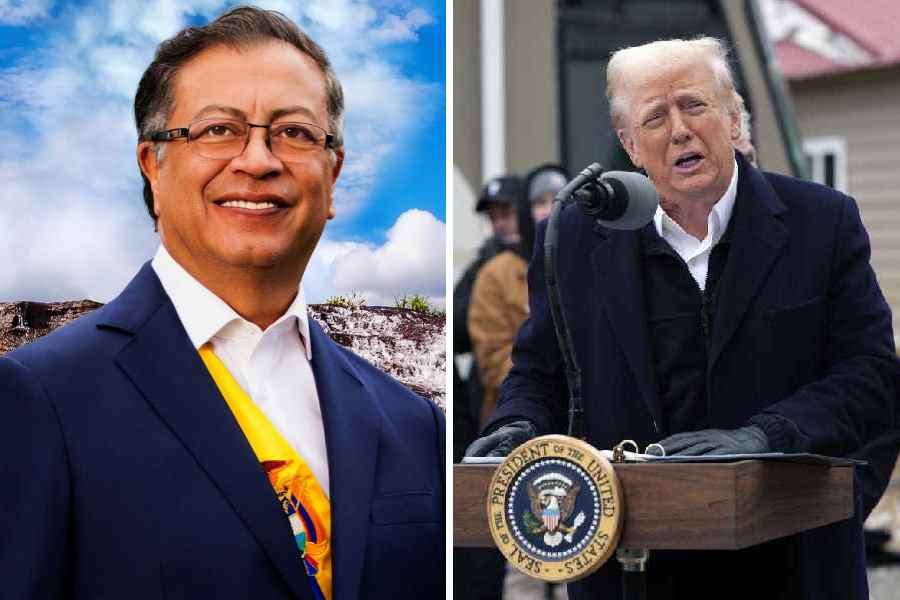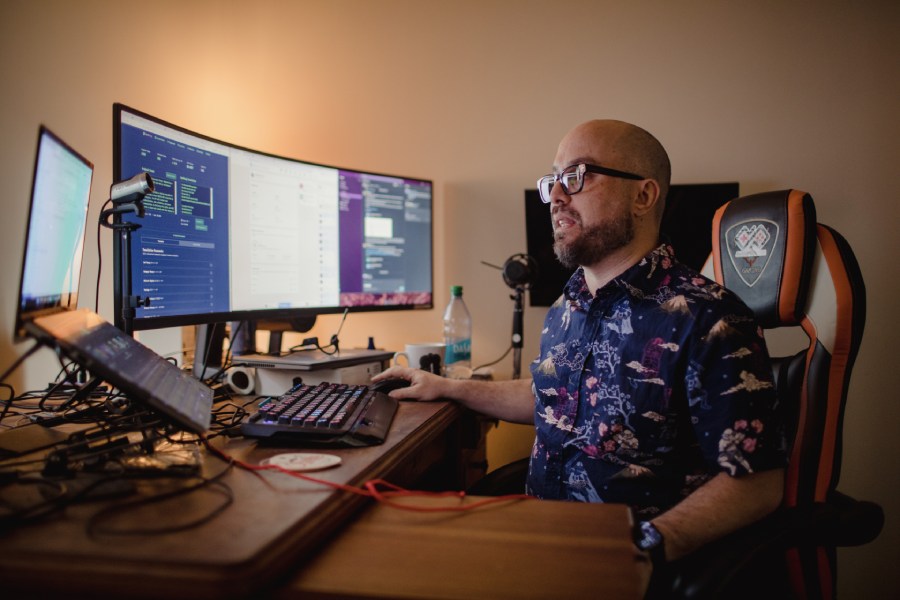Notwithstanding the month-long, high-voltage campaign for the Lok Sabha elections, polling (71.90%) dropped by almost 6% compared to the last time (77.84%) in Kerala, a state traditionally known for high polling percentages. Parties and pundits have been left guessing the possible causes for and consequences of this drop. The Congress-led Opposition, the United Democratic Front, appears most anxious as nearly all of its big wins were in high-polling elections, including in 2019, when it swept 19 of the 20 seats. The low turnout has been ascribed to various reasons like the heat wave, the absence of political waves, delays in polling processes, rise in voter strength, urban voter apathy, migration, vacations, Muslims going to mosques on Friday and so on.
Never has a Lok Sabha election in Kerala been so critical for all three national parties — the Bharatiya Janata Party, the Congress and the Communist Party of India (Marxist). While the BJP is hell-bent on breaching its final inaccessible frontier, the Congress, led by Rahul Gandhi, who contested once again from Wayanad, is keen on defending the bastion that yielded its biggest kitty of seats in 2019. For the CPI(M), recovering from its pathetic performance in the previous election in its last fortress is an existential imperative.
Despite the low turnout, there was no dearth of drama on the polling day. Voting began on the hot and humid morning of April 26 at the booth in the village school in Aroli, Kannur. A large media contingent stood waiting for the booth’s prominent voter, E.P. Jayarajan, the state convenor of the ruling Left Democratic Front and CPI(M) central committee member. The Marxist veteran had been in the news after Sobha Surendran, the BJP’s state vice-president and Lok Sabha candidate from Alappuzha, dropped a political bombshell on April 25. She claimed that Jayarajan had been in talks with her leaders about joining the BJP.
When Jayarajan arrived to vote, media persons crowded around him for a response. Known for his unguarded nature, Jayarajan said that on his granddaughter’s birthday last year, Prakash Javadekar, the BJP leader and prabhari for Kerala, had come to his son’s apartment in Thiruvananthapuram without notice, accompanied by T.G. Nandakumar, a self-styled political middleman. However, Jayarajan hastened to add that he never discussed politics with the BJP leader and that the meeting lasted only five minutes.
Minutes later, some distance away, in Dharmadam, Kannur, the chief minister, Pinarayi Vijayan, accompanied by his family, was walking down from his home to the local polling booth. When the media approached him for his response to Jayarajan’s revelation, Vijayan, dropping the CPI(M)’s usual organisational protocol, publicly censured his close comrade. He said that Jayarajan has often not been discreet about choosing friends. Unusually, Vijayan even cited a proverb: “Even Lord Siva becomes a sinner in the company of sinners.” More than Javadekar, the chief minister targeted Nandakumar, who accompanied the BJP leader and was friendly with Jayarajan. Some days ago, Nandakumar accused Anil Antony, the BJP candidate from Pathanamthitta and son of the Congress leader, A.K. Antony, of taking Rs 25 lakhs from him for an appointment when Antony Senior was the Union defence minister. Nandakumar also accused Sobha Surendran of receiving Rs 10 lakhs from him. Both politicians dismissed the charges as baseless.
However, Vijayan said that the charges about a CPI(M)-BJP deal were merely Congress-BJP propaganda and that Jayarajan was being vilified. “What’s wrong in meeting leaders of other parties? I have also met Javadekar at some public functions.” Sitaram Yechury, the CPI(M) general-secretary, said that he had nothing to add to the state leadership’s response. Javadekar admitted that he has met many leaders of different parties, including Jayarajan. Sobha Surendran said that many Congress leaders, including K. Sudhakaran, the Kerala Pradesh Congress Committee chief, also held parleys with the BJP. Jayarajan reportedly admitted later that he was late to realise that Nandakumar was a “fraud”, adding that a conspiracy was being hatched against him with the media’s support.
The Jayarajan-Javadekar meeting dominated the media on election day and provided ammunition to the UDF to buttress its charges of clandestine deals between the LDF and the BJP. Jayarajan’s alleged links with BJP leaders were in the news earlier too when he praised some BJP candidates in Kerala. The UDF pointed out that the Vaidekam ayurvedic resort that the CPI(M) leader was associated with in Kannur was run by Niraamaya Wellness Retreats, which is linked to the Bengaluru-based Jupiter Capital founded by the BJP’s candidate in Thiruvananthapuram and the Union minister, Rajeev Chandrasekhar. The Opposition leader, V.D. Satheesan, alleged that Jayarajan was Pinarayi Vijayan’s emissary in his deals with the BJP. The CPI(M) will likely initiate action against Jayarajan, not so much for meeting Javadekar but for keeping the party in the dark and embarrassing it by revealing details on polling day.
The issue grabbed the spotlight because of the stiff competition between the UDF and the LDF to prove themselves as more anti-BJP during the current election campaign. The CPI(M) accused the Congress of practising soft Hindutva, pointing to its leaders and their children joining the BJP, the absence of any mention of the Citizenship (Amendment) Act in its manifesto and so on. In early March, Padmaja Venugopal, the Congress leader and daughter of the former chief minister, K. Karunakaran, followed Anil Antony to join the BJP. The LDF also questioned why Rahul Gandhi was contesting from Wayanad against the Left instead of taking on the BJP in the Congress’s northern bastions.
Rahul initially refrained from attacking the Left in his campaign speeches in Wayanad and called it a part of his family. However, under pressure from the state Congress leaders, he soon changed tack to reiterate the UDF’s allegations about the red-saffron ties. Rahul asked why Pinarayi Vijayan was not behind bars despite being investigated by the Enforcement Directorate, unlike chief ministers such as Arvind Kejriwal and Hemant Soren. This provoked an outburst from Vijayan and CPI(M) leaders like Yechury, Prakash Karat and Brinda Karat against Congress leaders. Vijayan said that Rahul Gandhi should not try to live up to his nickname, prompting Narendra Modi to comment that the CPI(M) was using words even he did not use against the Congress leader. Priyanka Gandhi also lambasted Vijayan, asking why he always targeted her brother even while he kept silent on Modi.
Even as the Left and the Congress accused each other of having clandestine deals with the BJP, the latter charged the former of being secret allies. However, despite all these charges and countercharges and the low rate of polling, every constituency witnessed no-holds-barred contests between the UDF and the LDF, including their respective bastions. Fierce triangular tussles marked the five constituencies that the BJP considers its ‘A-grade seats’, where it garnered around 20-30% of votes in 2019. A particularly bitter contest occurred in Thiruvananthapuram — the only seat where the BJP came second in 2014 and 2019 — between the Congress’s hat-trick winner, Shashi Tharoor, and the BJP’s Rajeev Chandrasekhar, fighting his first Lok Sabha election. Thrissur is another seat where the BJP has high hopes for its actor-politician candidate, Suresh Gopi, for whom Modi campaigned twice during his unprecedented six trips to Kerala in four months.
M.G. Radhakrishnan, a senior journalist based in Thiruvananthapuram, has worked with various print and electronic media organisations











